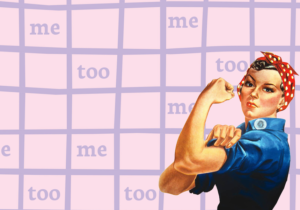In the immediate aftermath of the Sandy Hook shooting in Newtown, Connecticut, conversations north and south of the border quickly fixated on two issues: access to guns, and access to effective mental health services.
Most of that attention has focused on the former rather than the latter, and with it Canada has been held up as an example of the efficacy of sensible gun control. It’s a natural comparison. Canada has more gun restrictions and less gun-related crime and fatalities, and so it should provide all those still interested in exploring the validity of the connection between guns and the deaths they produce plenty of material to continue what should be one of the more unnecessary conversations in modern society.
But what of the latter issue — access to mental health care?
The narrative south of the border has correctly been one of inadequacy, of those who need help failing to receive it. Sadly, due to its broadness, the dialogue has also largely conflated all forms of mental illness with the potential for unthinkable violence, and how the lack of appropriate care can sometimes have tragic and horrific consequences: Adam Lanza in Sandy Hook; James Eagan Holmes in Aurora, Colorado; Seung-Hui Cho at Virginia Tech. And while that conflation offers an unfair misrepresentation of mental illness as a whole, the fact that the issue of access to care is now mainstream has to be viewed as a positive development.
Unfortunately the same can’t be said for Canada. Here, the pride and presence of comparatively effective gun control seems to have granted the national conversation an exemption from exploring the inadequacies of our own mental health care system.
Canada and the United States devote roughly 7 per cent of their public health care budgets to mental health care, well below other international leaders such as Britain, which annually spends over 12 per cent. In 2003 Canada spent a dismal 4 per cent.
The consequences are costly.
According to the Mental Health Commission of Canada, one in five Canadians experience a mental health problem yearly, and only one third of them will seek or receive help. Those with significant problems who go without treatment or support often fall victim to a wide range of negative consequences: depression, suicide, unemployment, homelessness, violence, victimization, and repeated encounters with the criminal justice system.
In Vancouver, these issues are particularly acute.
A 2008 study by the Vancouver Police Department found that half of all calls to the police in the Downtown Eastside involved people with mental health issues. Similarly, a Canadian Mental Health Association study found that 30% of those seeking mental health services and treatment in BC came into contact with the police and the criminal justice system during their first attempt. The CMHA also reports that the majority of people in correctional facilities in BC suffer from mental health issues.
The national economic cost of dealing with such fallout, according to the Mental Health Commission, exceeds $50 billion.
But stigma, discrimination, and ignorance still stand in the way of change. Reaction to the Sandy Hook shooting is testament to that. The silence in Canada has stood in stark contrast to the debate in the United States on what is — unavoidably — a shared problem. That the debate south of the border might lead to positive, long-lasting change is, unfortunately, an unlikely outcome. Equally unlikely however, is that the complete lack of a debate here in Canada will lead to anything other than more of the same — which is already entirely inadequate.









